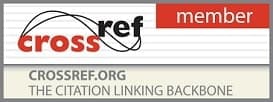
Printed Journal | Refereed Journal | Peer Reviewed Journal
2024, Vol. 6, Issue 1, Part B
A study to assess the effectiveness of teaching module on perceived readiness for hospital discharge among in-patients diagnosed with kidney disease admitted in a selected hospital, Bangalore
Mini Joseph, Paromita Mondal, Jyothi Joy Mattathil, Jyothi Maria Shaji, Jyoti Raj, Keerthana Mariya Jestine, L Leah Suchita, Leah Rose George, Liya Joseph, Lynn Mariya Shaju, Maria TS and Mariya Antony
Background: Readiness for hospital discharge has been described as an estimate of patients and family member’s ability to leave an acute care facility, a perception of being prepared or not prepared for hospital discharge. It is also an indicator of sufficient recovery to allow safe discharge. Nurse-delivered discharge teaching increases self-care adherence, improves clinical outcomes and reduces cost of care. Assessment produces actionable information to identify areas of low readiness for discharge and to help prepare patients for discharge. It can also help reduce readmissions.
Objectives of the study
1.To compare the perceived readiness for hospital discharge among kidney disease patients between experimental and control group.
2.To determine the association of perceived readiness for discharge with selected baseline variables in both the group.
Methods: The data was collected from patients diagnosed with kidney disease using Quasi-experimental post-test only control group design. A total of 54 patients with kidney disease were recruited from SJMCH, Bangalore using a non-probability convenient sampling method in which 27 were grouped into control group and 27 into experimental group. Structured interview was used to collect baseline information and assessment was done using Readiness for Hospital Discharge Scale (RHDS). For experimental group, teaching module was administered on the 2nd day of admission and for controlled group standard of care was given. For both groups, readiness for hospital discharge was assessed by RHDS on the day of discharge from the hospital. The data was analyzed by using descriptive and inferential statistics.
Results
The total readiness score in experimental group ranged between 104-189 with a mean of 163.93, whereas in control group the range was 80-186 with a mean of 123.96. A statistically significant difference was found in the perceived readiness for discharge with p value of 0.000.
There is a significant difference in the mean of discharge readiness score between the two groups with the mean significantly higher for experimental groups.
Statistically significant association of RHDS was found with gender (p<0.008) and family support (p<0.009) in experimental group and monthly income (p<0.007) in control group.
No association was found with other baseline variables like age, education, presence of AV fistula, duration of hospitalization on day of discharge, associated illness and family history of kidney disease.
Conclusion: The study showed that teaching module has enhanced readiness for hospital discharge which is a simple, effective and independent intervention to prepare patients for discharge.
Pages : 75-83 | 88 Views | 48 Downloads

How to cite this article:
Mini Joseph, Paromita Mondal, Jyothi Joy Mattathil, Jyothi Maria Shaji, Jyoti Raj, Keerthana Mariya Jestine, L Leah Suchita, Leah Rose George, Liya Joseph, Lynn Mariya Shaju, Maria TS, Mariya Antony. A study to assess the effectiveness of teaching module on perceived readiness for hospital discharge among in-patients diagnosed with kidney disease admitted in a selected hospital, Bangalore. Int J Adv Res Med Surg Nurs 2024;6(1):75-83. DOI: 10.33545/surgicalnursing.2024.v6.i1b.169
Related Journal Subscription





 Other Journals
Other Journals
